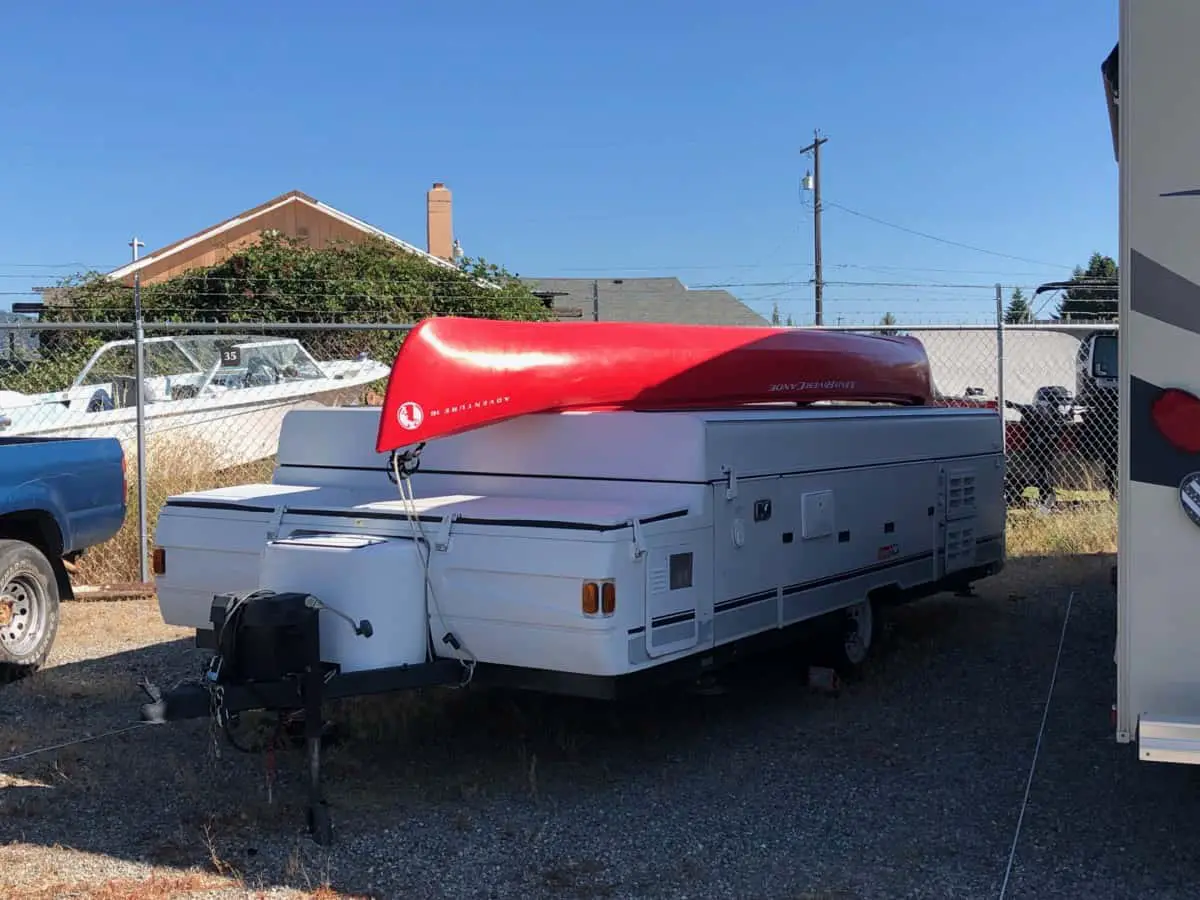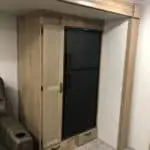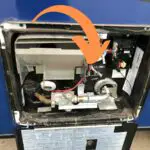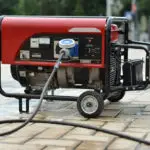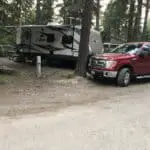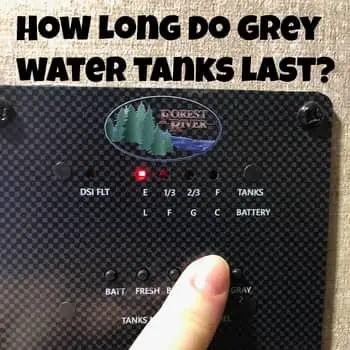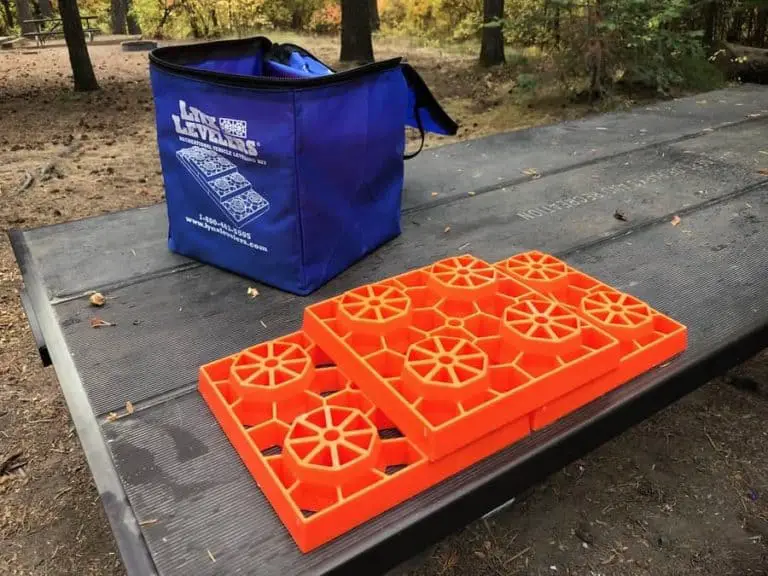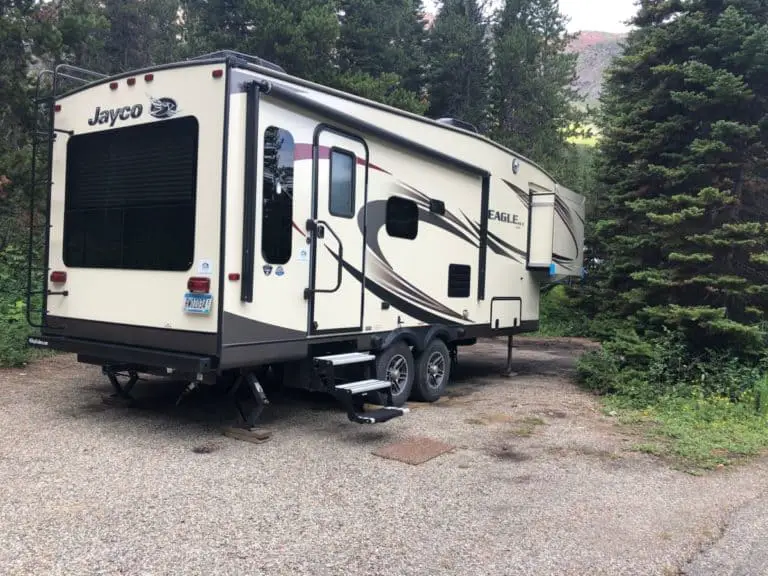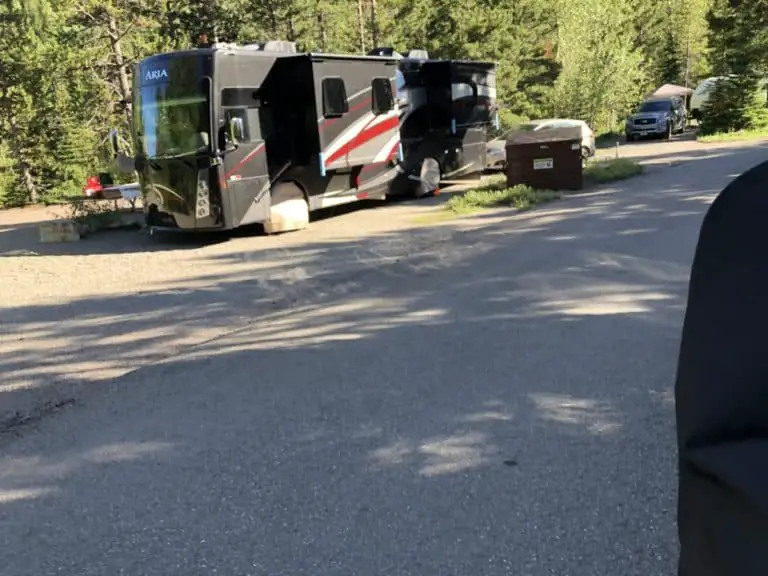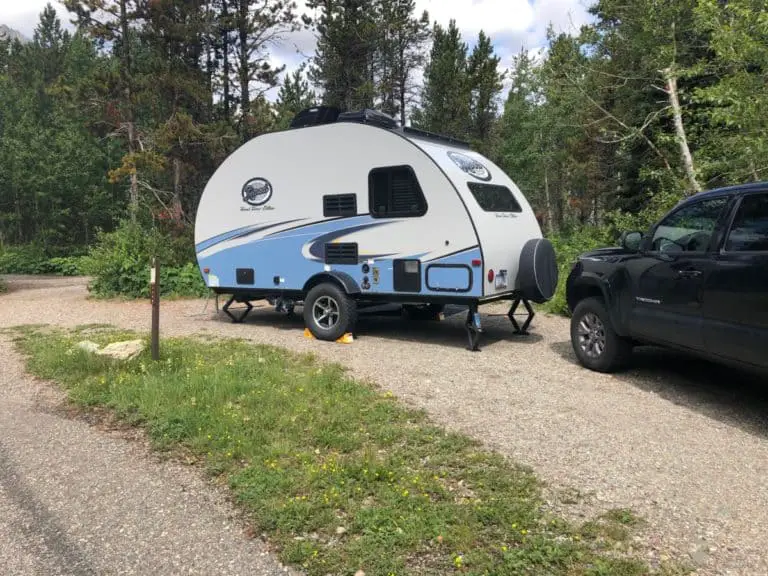Does the Heat Actually Work in a Popup Camper?
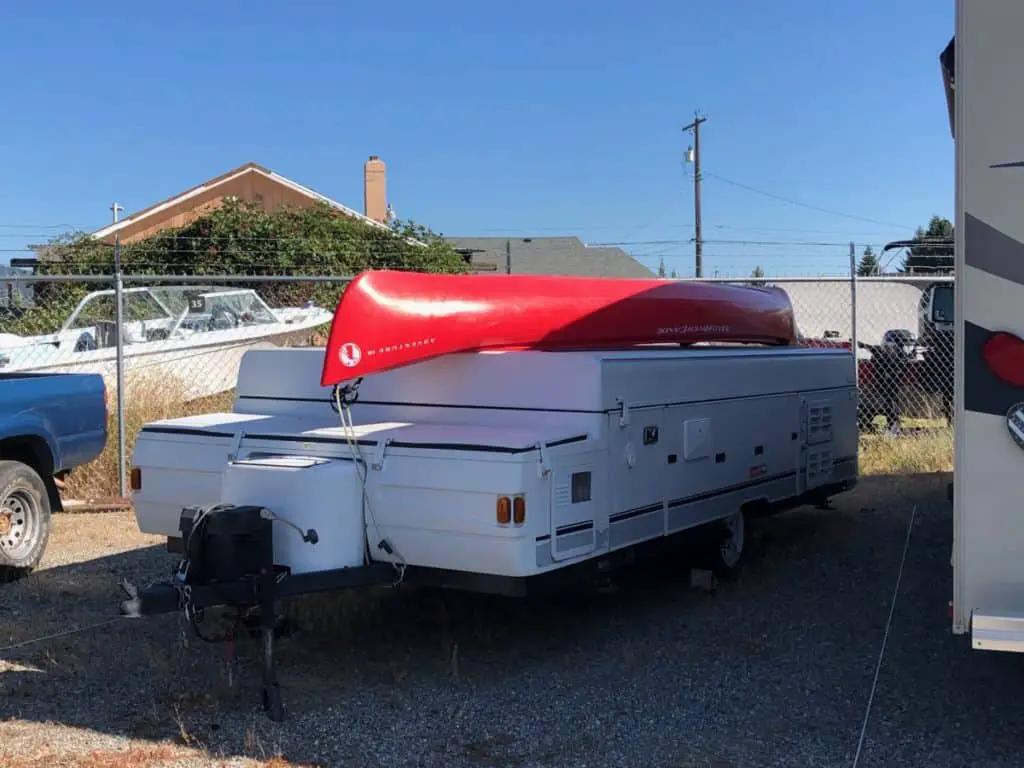
Heating is an essential factor to consider when purchasing a popup camper. The fun of these campers is their versatility; so, a reliable heating system can help you get the most out of your investment, and get you on the road for more adventures. You’ll want to be able to use your camper in a variety of weather conditions, and stay warm throughout the night regardless of the climate.
Many people doubt the efficiency of heating these campers due to their canvas pop-outs. This design creates a challenge for retaining heat due to a lack of insulation. So the big question is, will a heater really heat a popup camper?
Dees the heat actually work in a popup camper? Yes, it is possible to effectively heat a popup camper using a heater. The trick is finding the most efficient method for your situation which could be your built in furnace, external propane heater, or electric heater. After you have good heat, retaining it in your camper is the next challenge.
Types of Heaters in Popup Campers
There are several different methods to consider for heating your popup camper. Let’s take a look at three popular methods for maintaining a cozy temperature. The three systems we’ll focus on are built-in furnaces, portable propane heaters, and portable electric heaters.
Built-in Furnace
Most popup campers come with a built-in furnace as the primary heating system. This type of system usually runs on propane. It will have a blower system attached in order to circulate heated air throughout the camper. This part of the system will usually run on electricity or batteries, so it is possible to use this system even if you do not have access to electric hookups.
Advantages:
- A significant advantage of a built-in furnace is, of course, that it likely came with the camper itself. Therefore, if you use this method, you do not have to purchase or install another system.
- The propane used in a built-in furnace also heats the water in your camper and provides fuel for ovens and stoves. This means that only one propane tank is needed to power all of these functions.
- This system is a tried and true method that has been used to heat campers for many years. Therefore, this method is one of the simplest and most convenient options available.
- This system can function while you are off grid on battery power.
Disadvantages:
- A disadvantage of using built-in furnaces is that propane use comes with certain safety risks. You’ll need to have a carbon monoxide detector in your camper to ensure the air quality remains safe.
- Many people question the efficiency of these built-in furnaces. These heaters are known to waste a small amount of propane, which ultimately wastes the money you spent on the unused fuel.
- Inefficiency also comes into play if you only want to heat a particular area of the camper. The built-in furnace heats the entire camper, so if you only need one area heated, you may want to consider another heating method to save money.
- The need to refuel your propane can be time-consuming and sometimes occur at an inopportune moment.
- If you are running off the battery, you will need to keep them charged to not drain them.
Portable Propane Heater
A portable propane space heater is a standard solution for heating recreational vehicles. The efficiency and portability of these heaters make them a great alternative to the built-in furnace that may have come with your popup camper. One of the most popular propane space heaters is the Mr. Heater Buddy. This has built-in safety features.
Advantages:
- An advantage of this type of heater is that it is portable. Many of these heaters can be used indoors and outdoors, which is excellent for your favorite activities like ice fishing, tent camping, or even working in a cold workshop. This versatility makes this type of heater a great companion for your winter adventures.
- The heat is adjustable, so you can save energy by using a lower setting if possible.
- Easy assembly. This type of heater does not require a complicated installation process. Simply connect the propane bottle, make sure there are no leaks, and you are ready to operate your heater.
- Safety features. Many of these propane heaters have an automatic shut-off feature in case the machine tips over, or it detects a low level of oxygen in the surrounding air.
- You can use this to heat a certain area of your camper and not heat the entire space to save energy.
Disadvantages:
- Some people claim that the automatic shut-off feature is hypersensitive. This means you may have to assess your environment to see if there is actually a safety risk. It could also shut off if you are in a high-altitude environment.
- Users of this type of heater also say the exposed flame can pose a safety risk, especially in the presence of children or pets.
- With any propane-fueled heater, carbon monoxide levels in the air can become a safety risk. However, as long as the built-in oxygen sensor is properly functioning, you should not have to worry about this.
Portable Electric Heater
A portable electric heater is a solid option if you’re hoping to forego propane-fueled heating. Simply plug the heater into an electrical hookup and enjoy safe, electric heat in your camper.
Advantages:
- A big advantage of this type of heater is that you can avoid the expense of filling a propane tank. Not only does this save money, but it also avoids the time it takes to refill a propane heater.
- You can use your portable electric heater in a small space, adjust the thermostat, and use a built-in timer to automatically shut off the machine after your preferred time limit.
- Many of these heaters have convenient features such as wireless remote controls and an automatic shut-off function in case of overheating.
- An electric heater can heat one room in order to save energy and not heat the entire trailer.
Disadvantages:
- A portable electric heater can pose its own set of safety risks. Users have experienced the plastic siding of their units burning, becoming a fire hazard, and emitting an unpleasant smell. It is also essential to keep the heater a safe distance away from any flammable objects.
- Depending on the heater you purchase, the noise it produces might be distracting. If you prefer a quiet machine, you’ll need to make sure your unit was designed with a quiet setting before purchasing.
- This will only work while you are plugged into 110v power.
What size do you need?
If you are considering purchasing a portable propane heater, you’ll want to look out for the amount of BTUs the unit emits. The size and power you need will depend on the size of your camper, the insulation you use, and the temperature and weather conditions you are preparing for.
A quick way to calculate the BTUs you require is by multiplying the square footage by the heating factor necessary for your climate zone. You can find a climate zone map online to determine this number.
Usually, your heating factor number will be listed on a scale. You will most likely want to aim for the higher end of this range due to lack of insulation in your camper. Calculating this number can help you ensure that you get a heater with the ideal amount of BTUs to keep you warm. This handy calculator will give you your BTU output that you will need.
Do you really need heat in a popup?
Your need for heating will depend on the climate where you are using your popup camper. With that said, it’s a good idea to consider some form of heat so you can use your camper in a variety of weather conditions and climates. Half of the fun of a popup camper is getting to use it to explore new places, so heating will ensure you can do so and still stay warm during chilly nights.
Since popup campers are partially made out of canvas material, it can be challenging to keep them warm. A combination of heating, insulation, and other maximization tricks will help you stay comfortable in a wide variety of climates.
Tips to Maximize Heat
There are several ways you can maximize the heat in your camper regardless of the system you use. To find more tips on heating your RV, read our top tips to keep your camper heated here. Here is a list of tips to help you get the most out of your camper’s heating system:
- Park in the sun when possible. The sun will provide added heat throughout the day that can help boost the temperature inside your camper.
- Close up windows to maximize your insulation efforts.
- When not in use, close popup areas to keep heat in. The smaller the area, the easier it will be to produce and retain a comfortable amount of heat.
- Clean your duct filter to ensure the furnace system is as efficient as possible.
- Adjust your furnace’s ducts to make sure the maximum amount of heated air is flowing outward and flowing in the direction you are using.
- Insulate as needed. You can insulate windows, doors, walls, beds, and any other areas using thick blankets, curtains, rugs, Styrofoam, or other insulation material. This can make all the difference in how much heat you are able to retain.
- Install reflective insulation over popup canvas to keep these less insulated areas warm.
Can you Install a Camper Furnace Yourself?
In the case that your popup camper does not have a pre-installed furnace system, you can install one yourself. It is crucial to make sure the size and BTUs are compatible with your camper before installing.
Depending on how handy you are, you may be more comfortable hiring a professional to help you with this process. They can determine the materials, measurements, and proper installation methods needed to get your camper furnace up and running.
How much are Heaters?
Depending on the method you choose, you may pay anywhere between $20 and $800 for a system to heat your camper. There are several factors to consider when making this choice, and a bigger investment may be worth it in the long run.
Any of these purchases will require a continued investment of either fuel or electricity to operate the system. Take a look at this list to decide which method is right for you.
Furnace
If your popup camper does not already come with a built-in furnace installed, this purchase will set you back between $300 and $800. This is the most expensive option for heating your camper, but the investment may be worth it in the long run. Most of the time you will need to get this installed by a professional. Some RV’s may not be able to have this added on separately.
Keep in mind that this choice will require regular purchases of propane to keep the system fueled.
Portable Propane Heater
Depending on the BTUs and features of a portable propane heater, this machine will cost between $70 and $140. This system will also require propane refills, but the added efficiency will save you money on fuel in the long run. This model is one of the most popular portable propane heaters on the market.
Portable Electric
A portable electric heater can cost between $20 to around $130 depending on size. A small electric heater can be very affordable, and may be all you need to stay warm in your camper. We like this model as it has a thermostat and remote. Since this type of heater requires electricity, you should consider this when thinking about the investment in the long run.
The good thing about portable heaters is that you can remove them from the camper for use in other settings. This factor may help you get more out of your purchase.
Conclusion
If you’re hesitant to purchase a popup camper, or you’re looking to heat one you already own, know that it is possible to find a system that works for you. Despite the canvas material, lack of insulation, and efficiency issues with certain systems, you can still find a way to stay comfortable on a cold winter’s night.
Don’t let cold temperatures prevent you from getting the most out of your popup camper. This is an investment you made to get out and see the world, and you should be able to do so regardless of the climate. A built-in furnace may be your ticket to happy camping, but plenty of people enjoy warm nights with portable electric or propane heaters as well.
Be the first to be notified about FREE tips, hints, coupon codes, and email-exclusive information. All for FREE!

